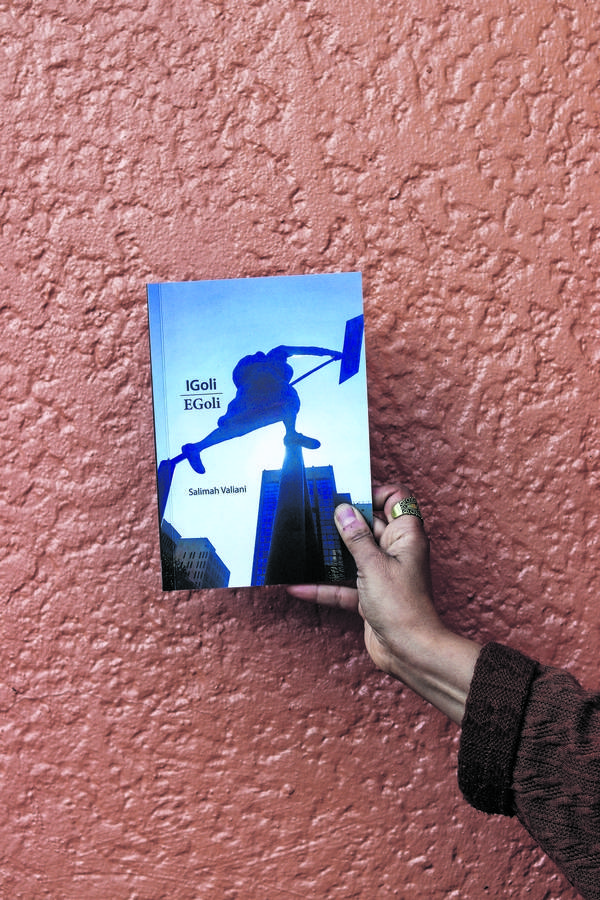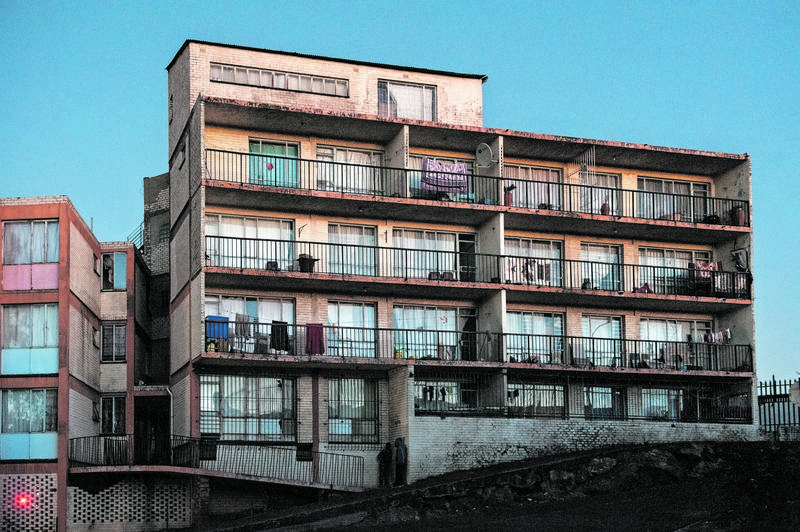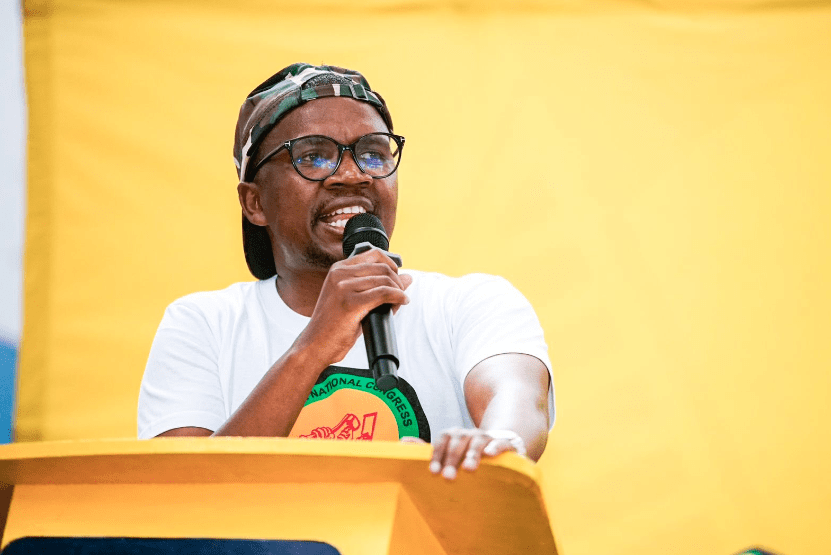Going for gold: Salimah Valiani’s anthology of poetry iGoli eGoli is a socio-political examination of the city. Photo: Delwyn Verasamy
I recently moved from Pretoria to Johannesburg. But it does not feel like I have moved less than 60km, within the same province. Perhaps the same gulf would be experienced by a Ugandan shifting homes from Entebbe to Kampala.
Pretoria is a laager — homely, family-guarding and tribalistic. Johannesburg, Jozi, is a cacophony of smells, colours, movements bold and slow — and thievery. It is a clanging mix of noises, of nonchalance, of quietness. It is a free-for-all home, yet closely guarded by Joburgers.
This is the feeling I get reading Salimah Valiani’s anthology iGoli eGoli. They are beautiful, thoughtful and insightful poems, thrown around, and yet easily abstracted thematically.
Listen to Charlie Mingus’s Moanin’. And, in those jazz trumpet notes, you will find the oomph, amandla!, the verve and bouncing madness you will feel in iGoli eGoli.
iGoli, the first section of the collection, refers to a being — the beingness of the city.
There is memory — belonging in memory in a particular place out of choice in contrast to being placed in it out of birth; dispossession; the chameleon-like shift of identities between a thief and a usurper (when does one become which in a city with this history of dispossession and shifting identities?).
It is about migrancy; the precariousness and mundaneness of black labour; the invisibility of black women’s pains hung out in public.
The second half takes the city in its physicality and what goes into it.
It draws us closer to how iGoli-Jozi’s globalising is active and fulfilling in many ways, going against the common understanding that Global South cities are as not as globalising as their Global North counterparts.
However, this second part is not as spine-chilling, jaw-dropping, throbbing, soft-fluffy and humorous as the first section.
Also, it has a more elaborate narrative feel, written in a more expository fashion — perhaps revealing the academic side of Valiani, who is a lecturer at Wits.
Memory and belonging to a place that was yours, or you thought was yours, comes out strong in the poem 56 Chapman Street: “I drive to the shop/ buy a bouquet/ and throw the flowers to the street/ I grew up thinking the house was ours/ The shop where I buy the flowers was owned by the Greeks/ I used to eat snacks there pastries roll/ the pastries are still there/ now the shop is run by Somalis/people who look more like me.”
This runs on a similar feel to how Valiani centres iGoli-Jozi not as an elusive place in memory but as a precise location where cultures — Middle Eastern, Arabic, African, South and Latin American — locate each other and find meaning and purposes in each other.
In or, Only in Jozi (ii) and On love (xlv), Valiani writes about the Arabic and Middle Eastern cultures scattered around Canada and England, which, through cuisine, meet in iGoli-Jozi.

This globalising purpose was always there in pre-colonial Mzansi. Valiani reminds us of that in Intraction Extraction, about Mapungubwe and how Mzansi was an integral part of global commerce and cultures, way before 1652.
And then, most spine-chillingly, told in a blow-by-blow account, is the misery of the poor black woman. In Shrieking Yellow, we find a “woman who’s lost her mother several siblings baby thrown to fire”.
The shock is in the layout of the sentence. It does not pause and separate the losses and the pains, counting them isolated from each other.
It loads and lumps them all together, while moving along non-stop. In that, we see how the poor black woman’s overwhelming lot has been normalised. Valiani continues: “90-year-old matriarch head of a family of nine/ fleeing persecution third time in two decades/ feigned silence/ teenage girl raped at home regularly by the boarder”.
There is no full stop after “boarder”. The violence continues, as does the invisibility of the poor black working woman’s pains hung out in public, in Inimba: “I saw a lady walking alone screaming and crying/ I said to my passenger Shall we turn back and check on that lady/ She said What lady/ I told her and she said Oh I was busy on my call.”
iGoli-Jozi as a place of pain and loss comes out in how the city, as part of Africa, loses and collects hauntingly its diaspora.
In Footsteps (iii), male members of a family are tossed about and lost in various travels and adventures in pursuit of life.
“Adnan who didn’t meet his father again/ Abdulai and the daughter he left/ Tariro returning home to die/ Kilmi in the train twenty years on turning away when you said his name.”
But the city is also throbbing in all its inequalities. In Counterclock Clock, black and poor iGoli-Jozi moves, rushing headlong, colourfully, noisily, rickety, hanging, yet not collapsing.
We see: “a park teeming with/women children bedsheets swathed in sunbathing clothes/ Stop Over Africa/ Mm Invest Auto/ We Pawn Bikes/ Divin Muthi Shop/ AMG Halal Takeaway/ Bamenda Boy Auto Body/ orange pyramids tilted against/ red crochet onions/ puffy green bushels not grown in Shoprite or Bismillah Supermarket/ sweet potatoes half the arm.”
In all this, Valiani perhaps reminds us of the big South African question she posed in her 2009 poetry publication, Letter Out: Letter In, in the poem, Love or Death: “In the new South Africa/ much is beautiful/ but it remains unclear/ how much is new or/ what has changed/ But we continue trudging along in our iGoli eGoli, figuring it out as we go along.”
iGoli eGoli is published by Botsotso Books. It will be launched on Saturday 13 July at 2pm at the Sophiatown Cultural Centre-Trevor Huddleston Museum in Johannesburg.
Dr Buntu Siwisa is an award-winning author and a senior lecturer in the department of politics and international relations at the University of Johannesburg.





















Discussion about this post